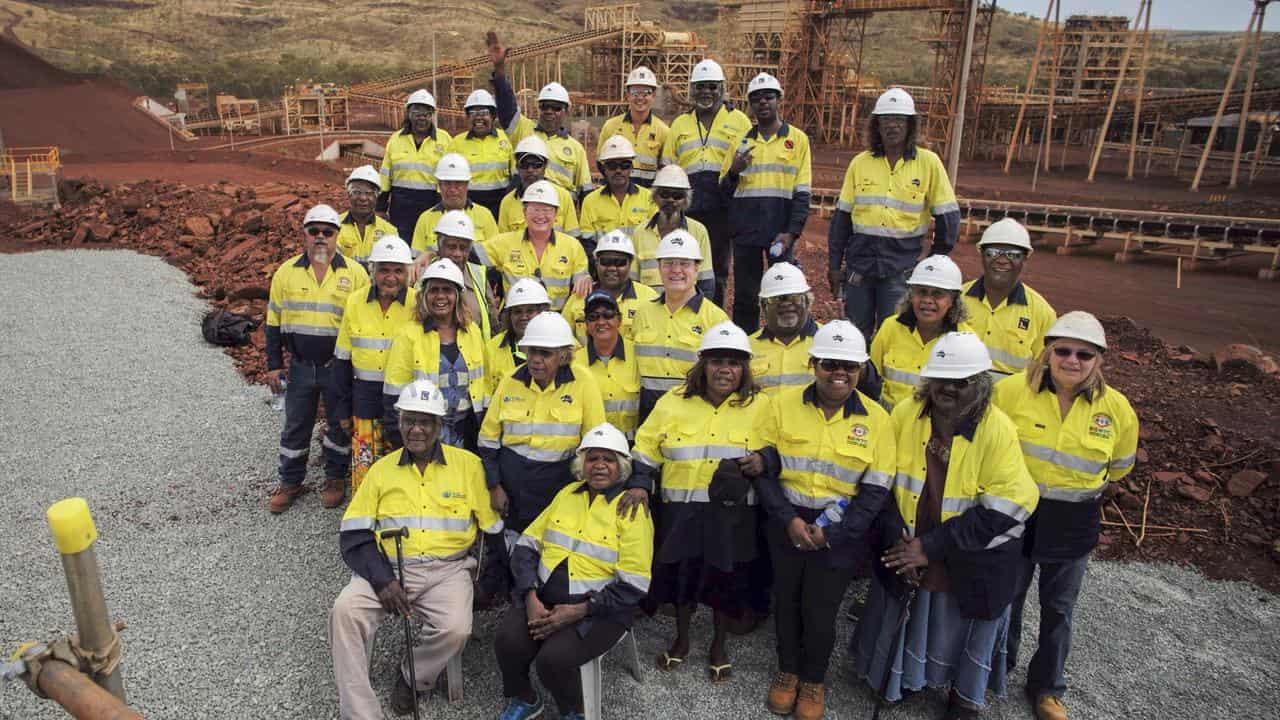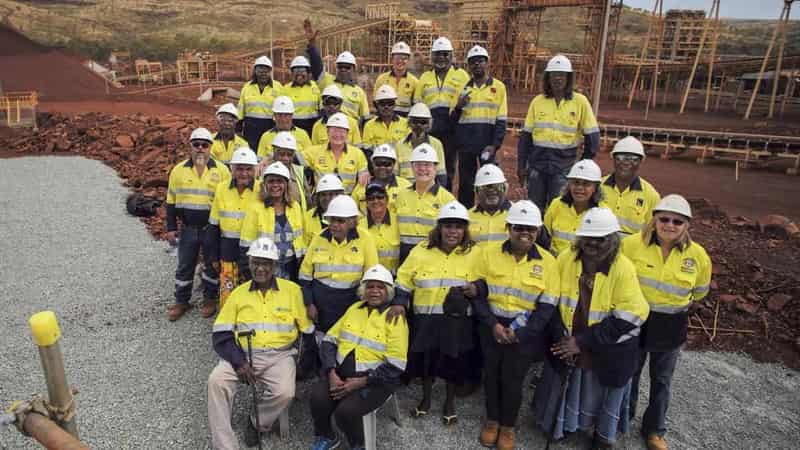
Should Fortescue Metals Group - the mining company founded by billionaire Andrew 'Twiggy' Forrest - pay Yindjibarndi people millions of dollars or very little for digging up iron ore worth billions from their land?
That's the question being considered in the long-running native title battle in the Federal Court, which on Monday and Tuesday heard testimony from valuers on both sides.
Since Fortescue began mining at the Solomon hub in the Pilbara in 2013, the company has shipped off iron ore reportedly valued at roughly $50 billion, legally destroying dozens of significant Yindjibarndi sites in the process.
FMG has not paid the Yindjibarndi people a cent and they are seeking compensation for destruction of country and of community.
Yindjibarndi are arguing compensation should take into account other mining agreements, where native title holders negotiate an arrangement based on a percentage of royalties, considered standard practice in the industry.
But FMG is saying compensation should be calculated without reference to the value of any minerals on or in the ground.
Economics Consulting Services director Murray Meaton, an independent expert who has worked in native title negotiations, told the court that standard royalty rates ranged from 0.05 to 1 per cent of the free on board sale revenue with an average of 0.55 per cent.
He said the most common rate by far in the Pilbara is 0.5 per cent and Rio Tinto, for example, uses that percentage.
Fortescue barrister Brahma Dharmananda said the focus of compensation should be the impact on native title rights and interests - and cannot be treated as equivalent to the amount mining companies have been prepared to pay to native title holders under negotiated agreement.
But Mr Meaton said native title rights negotiations recognise the value of the benefits to the other party as well as the impact on the situation.
"What if you owned a residential lot that was suitable for a single house?" he said.
"You would expect one price but if it was suitable for three houses, you would adjust your price to reflect increased benefit to the other party."
When Fortescue began planning the Solomon hub in the mid-2000s it started negotiating with the Yindjibarndi Aboriginal Corporation, which wanted a 0.5 per cent royalty, the standard rate paid by major iron ore miners in the Pilbara.
Fortescue offered $4 million a year and $6 million in housing, training and employment programs.
When YAC refused Fortescue’s offer, the mining company gave financial backing to a breakaway group, Wirlu-Murra Yindjibarndi Aboriginal Corporation, which paid people $500 each to attend a meeting that voted in favour of a deal with FMG.
Fortescue began mining with no agreement with YAC, which had been named as the appropriate native title body by the Federal Court.
The split between the two groups caused massive rifts between Yindjibarndi people, including families.
Mr Meaton's report, prepared for the Yindjibarndi Ngurra Aboriginal Corporation, which is bringing the case, estimates that lost royalties compensation for the impact of mining activities on Yindjibarndi land is valued at $339 million for iron ore produced to December 2022, plus interest of $56 million.
He has also estimated compensation for the loss of royalties on future production at $107 million.
Independent actuaries, employed by FMG, have said in their report that the Yindjibarndi people should be compensated for their actual economic loss, which does not include any rights in relation to minerals and should only take into account the loss of use of the land and not by reference to other agreements.
13YARN 13 92 76
Aboriginal Counselling Services 0410 539 905









